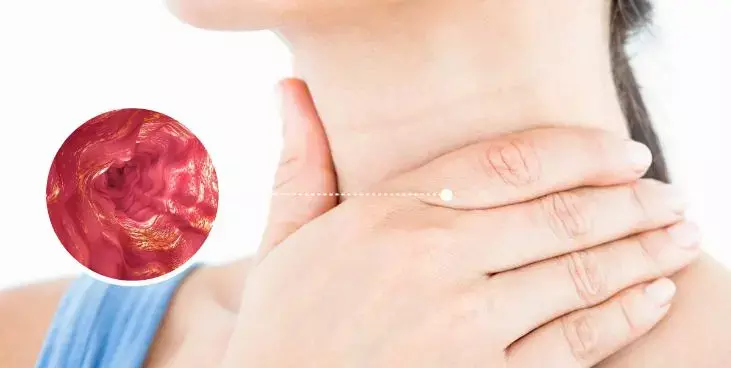- Home
- Medical news & Guidelines
- Anesthesiology
- Cardiology and CTVS
- Critical Care
- Dentistry
- Dermatology
- Diabetes and Endocrinology
- ENT
- Gastroenterology
- Medicine
- Nephrology
- Neurology
- Obstretics-Gynaecology
- Oncology
- Ophthalmology
- Orthopaedics
- Pediatrics-Neonatology
- Psychiatry
- Pulmonology
- Radiology
- Surgery
- Urology
- Laboratory Medicine
- Diet
- Nursing
- Paramedical
- Physiotherapy
- Health news
- Fact Check
- Bone Health Fact Check
- Brain Health Fact Check
- Cancer Related Fact Check
- Child Care Fact Check
- Dental and oral health fact check
- Diabetes and metabolic health fact check
- Diet and Nutrition Fact Check
- Eye and ENT Care Fact Check
- Fitness fact check
- Gut health fact check
- Heart health fact check
- Kidney health fact check
- Medical education fact check
- Men's health fact check
- Respiratory fact check
- Skin and hair care fact check
- Vaccine and Immunization fact check
- Women's health fact check
- AYUSH
- State News
- Andaman and Nicobar Islands
- Andhra Pradesh
- Arunachal Pradesh
- Assam
- Bihar
- Chandigarh
- Chattisgarh
- Dadra and Nagar Haveli
- Daman and Diu
- Delhi
- Goa
- Gujarat
- Haryana
- Himachal Pradesh
- Jammu & Kashmir
- Jharkhand
- Karnataka
- Kerala
- Ladakh
- Lakshadweep
- Madhya Pradesh
- Maharashtra
- Manipur
- Meghalaya
- Mizoram
- Nagaland
- Odisha
- Puducherry
- Punjab
- Rajasthan
- Sikkim
- Tamil Nadu
- Telangana
- Tripura
- Uttar Pradesh
- Uttrakhand
- West Bengal
- Medical Education
- Industry
Long term use of Budesonide oral suspension improves eosinophilic esophagitis,finds study

Continuing budesonide oral suspension (BOS) numerically improved maintenance and efficacy versus withdrawal among eosinophilic esophagitis patients, suggests findings from a recent study. The reports have been published in Clinical Gastroenterology and Hepatology.
Eosinophilic esophagitis (EoE) is a chronic immunemediated disease characterized by esophageal dysfunction and eosinophils/high-power field (eos/hpf) in the esophageal mucosa.The prevalence and incidence of EoE are increasing since the last decade. Budesonide oral suspension (BOS) is a novel mucoadherent topical corticosteroid formulation with a standardized viscosity and concentration, designed specifically for the treatment of EoE.
Researchers evaluated treatment withdrawal, long-term outcomes and safety of budesonide oral suspension (BOS) 2.0 mg b.i.d. in patients with eosinophilic esophagitis who completed a 12-week induction study.
For the study design, Induction full responders (≤6 eosinophils per high-power field [eos/hpf] and ≥30% reduction in Dysphagia Symptom Questionnaire [DSQ] score) to BOS 2.0 mg b.i.d. (ORBIT1/SHP621-301/NCT02605837) were randomized to continue BOS (BOS–BOS) or withdraw to placebo (BOS–PBO) for 36 weeks (ORBIT2/SHP621-302/NCT02736409). Induction partial- and non-responders, and patients who received induction placebo, received BOS for 36 weeks.
The primary endpoint was the proportion of BOS–BOS and BOS–PBO patients who relapsed (≥15 eos/hpf and ≥4 days of dysphagia [DSQ] over 2 weeks) by week 36. The key secondary endpoint was the proportion of induction partial- and non-responders who fully responded after 52 weeks' total BOS therapy. Secondary endpoints included: proportion of induction full responders with histologic responses (≤1, ≤6, <15 eos/hpf) at week 12 of the extension study, and safety outcomes.
Results revealed some interesting facts.
- The randomized withdrawal period enrolled 48 patients (BOS–BOS, n=25; BOS–PBO, n=23); 106 induction partial- and non-responders and 65 induction placebo patients received BOS.
- More BOS–PBO than BOS–BOS patients relapsed over 36 weeks (43.5% vs 24.0%; P=.131) and had histologic responses at week 12 of therapy (P<.001).
- Overall, 13.2% of induction partial- and non-responders fully responded at week 36. BOS was well-tolerated; therapy duration was not associated with new safety concerns.
"Continuing BOS beyond a 12-week induction period improves maintenance and efficacy over withdrawal in patients who are full responders, without additional safety concerns. A subset of patients who are initially partial responders or nonresponders may have full response with extended therapy.Longer therapy duration did not raise safety concern."the team concluded.
For full article follow the link: DOI:https://doi.org/10.1016/j.cgh.2021.06.020o
Source: Clinical Gastroenterology and Hepatology
Dr Satabdi Saha (BDS, MDS) is a practicing pediatric dentist with a keen interest in new medical researches and updates. She has completed her BDS from North Bengal Dental College ,Darjeeling. Then she went on to secure an ALL INDIA NEET PG rank and completed her MDS from the first dental college in the country – Dr R. Ahmed Dental College and Hospital. She is currently attached to The Marwari Relief Society Hospital as a consultant along with private practice of 2 years. She has published scientific papers in national and international journals. Her strong passion of sharing knowledge with the medical fraternity has motivated her to be a part of Medical Dialogues.
Dr Kamal Kant Kohli-MBBS, DTCD- a chest specialist with more than 30 years of practice and a flair for writing clinical articles, Dr Kamal Kant Kohli joined Medical Dialogues as a Chief Editor of Medical News. Besides writing articles, as an editor, he proofreads and verifies all the medical content published on Medical Dialogues including those coming from journals, studies,medical conferences,guidelines etc. Email: drkohli@medicaldialogues.in. Contact no. 011-43720751


